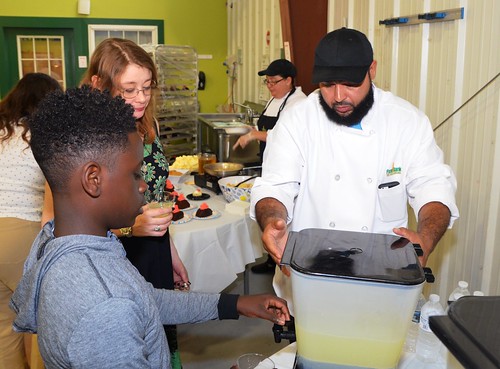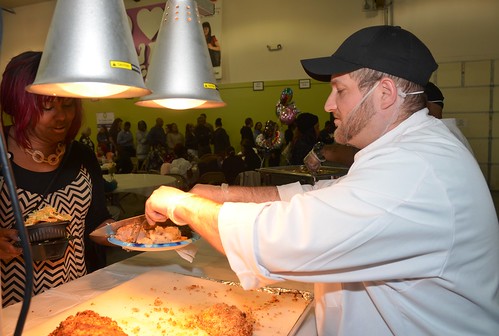
It’s graduation day, a time when young men and women proudly walk past family and friends to accept diplomas from their high school or college. The event marks the beginning of their new life, joining the American workforce. And perhaps, for some, marriage, starting a family and living in a house with a white picket fence.
This story, however, is about a different kind of graduating class. Unlike typical high school and college grads, these students have already tackled the struggles of unemployment, poverty, addiction and even years of incarceration. This graduating class is filled with students who are now restarting their journey toward economic self-sufficiency and attaining the American dream.
Lenny is one of those graduates. After being released following 13 years in prison, and determined to get back on his feet, Lenny learned of the WONDER (Work Opportunity Networks to Develop Employment Readiness) program, administered by Delaware’s Health and Social Services Division of Social Services. The WONDER program, funded through a USDA Supplemental Nutrition Assistance Program Employment & Training (SNAP E&T) pilot program, is designed to promote long-term self-sufficiency and independence by preparing SNAP recipients for employment through work-related education and training activities.
“I allowed circumstances in life to pull me away from what I was supposed to do,” said Lenny. “To be a graduate right now, and to see all the people who have helped me…to point me in the right direction. Everything just fell into place and this confirms where I am supposed to be.”
The Delaware WONDER program enrolls Supplemental Nutrition Assistance Program (SNAP) recipients into one of four career tracks: construction, manufacturing, culinary arts and broad-based job skills. Students who complete the training have an inside track at employment with one of the Wonder program partners.
Partners like Union Square Hospitality Group work closely with the Food Bank of Delaware, and the food bank’s culinary training school graduates are offered internships at local restaurants. Lenny is considering two job offers and hopes to join fellow graduate Kevin, recently hired at one of the group’s Shake Shack restaurants.
The lessons taught at the culinary school go beyond safely preparing and serving food. Students learn to cope with addiction, take responsibility for their actions and, according to Kevin, perhaps the most important skill in a commercial kitchen: the value of good communication.
“Sharp knives, hot pans, busy people running into one another. Before you know it someone’s food is on the floor or someone gets hurt.”
Communication is so important, says Kevin, especially while working a 450 degree grill churning out hundreds of flame broiled burgers every shift. A skill Kevin has mastered to the point that Shake Shack invited him to join the training staff for new cooks.
“I couldn’t be happier,” he says. “There are no words to describe how excited and humbled I am about this opportunity.”
Lenny and Kevin, full of hope, now feel as though they have a second chance at the American dream.

